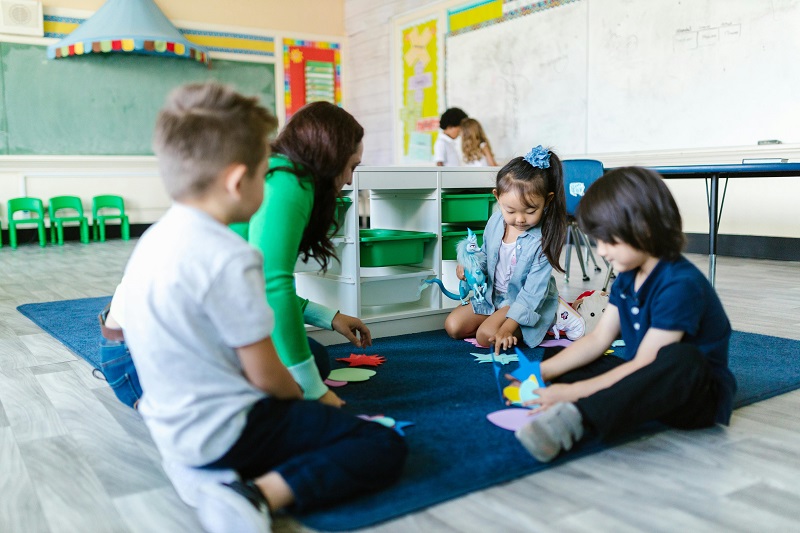
Mainstream early childhood education plays a pivotal role in shaping the foundation of a child’s learning journey. In this article, we unveil the challenges that educators face in this critical phase and delve into the profound impact these challenges can have on the children they aim to nurture.
In the diverse landscape of early childhood education, one size certainly does not fit all. Children come with unique learning styles, making it a challenge for mainstream education to cater to individual needs. Recognizing and adapting to these differences is key to fostering an inclusive learning environment.
Inclusion goes beyond a buzzword; it’s a necessity. Yet, mainstream early childhood education faces hurdles in ensuring that every child, regardless of background or ability, feels welcomed and supported. Overcoming these barriers involves not just policy changes but a shift in mindset and proactive measures to create an inclusive atmosphere.
Challenges in Early Childhood Education
Teacher Preparedness and Training
Teachers are the architects of a child’s educational journey. However, the challenge lies in preparing them to address the diverse needs of their students effectively. From understanding learning differences to employing adaptive teaching strategies, ongoing training is crucial for ensuring educators are well-equipped.
The educational landscape is constantly evolving, with new methodologies and approaches emerging. Keeping teachers abreast of these changes is a challenge, but it is also an opportunity to enhance the quality of early childhood education. Navigating this evolution requires a commitment to continuous professional development.
Limited Resources and Funding
Limited resources can hinder the delivery of quality education. From outdated materials to insufficient staffing, the impact is felt in the classroom. Unraveling the knot of resource constraints is vital for creating an environment where children can thrive academically and socially.
While financial limitations pose challenges, innovative solutions can bridge the gap. From community partnerships to leveraging technology, there are creative avenues to enhance the learning experience without a hefty price tag. It’s about fostering resourcefulness to ensure quality education for all.
Parental Involvement and Support
Parents are integral partners in the educational journey of their children. However, engaging them effectively is a challenge. Recognizing and communicating the vital role parents play in early childhood education is fundamental for building a strong foundation for a child’s learning.
Barriers such as time constraints and communication gaps can impede parental involvement. Breaking down these barriers involves creating avenues for meaningful communication, offering resources for parents, and fostering a collaborative relationship between educators and families.
The Impact of These Challenges on Children
The difficulties facing early childhood education have a big impact on how kids learn and feel. Let’s see how these challenges affect children:
Effects on Learning Skills
Not having good access to quality early childhood education can make it hard for kids to learn well. If they don’t get interesting learning experiences early on, they might struggle in school later. Think of a child in a neighborhood with not much money, where good learning programs are rare. That child might not learn as quickly as others, finding it tough to understand difficult things and keep up with classmates.
But, if kids get to join good early childhood education programs, it helps their brains develop better. These programs have fun activities that make kids think, solve problems, and be creative. It’s like building a strong base for doing well in school later.
Social and Emotional Impact
Early childhood education is important for how kids make friends and handle their feelings. Without it, kids might struggle with making friends and dealing with their emotions. Picture a child who can’t go to a good learning program—they miss out on chances to work with others, talk in groups, and learn how to handle problems nicely. This can make it hard for them to make friends, talk well, and control their feelings.
On the other hand, good early childhood education programs help kids make friends, control their emotions, and understand themselves better. They do activities that let kids share their feelings and understand how others feel. This helps kids deal with tough social situations, build good relationships, and feel ready for school and life later on. Solving these challenges in early childhood education is crucial so that every child can have the best start for learning and feeling good.
In conclusion, mainstream early childhood education faces numerous challenges, but each one offers an opportunity for growth and innovation. Recognizing the significant impact these challenges have on children emphasizes the need to address them collectively. By working together, finding creative solutions, and staying dedicated to the well-being of young learners, we can create a more inclusive, adaptable, and enriching educational experience for them in their early years of learning.
In this exclusive online opportunity, anyone, irrespective of their background, can delve into a wealth of knowledge on providing optimal care for young children, with a particular focus on those with special needs. The beauty lies in the inclusivity of this initiative – whether you’re a seasoned educator, a dedicated parent, or a nurturing caregiver, there’s something invaluable for everyone.
Unlock the secrets of adept child care through comprehensive modules, thoughtfully designed to cater to the unique requirements of exceptional children. From understanding diverse learning styles to implementing specialized strategies, this training course equips you with the tools needed to create a supportive environment.
Picture yourself gaining insights into the latest evidence-based practices, tailored to enhance the overall well-being of the children under your care. Nurture Pods’ commitment to fostering a community of knowledgeable and compassionate individuals shines through in this initiative. Seize this golden opportunity to expand your skills and make a lasting positive impact on the lives of the extraordinary children you nurture.
Written by: Alex Liau
Published on 1 April 2024





